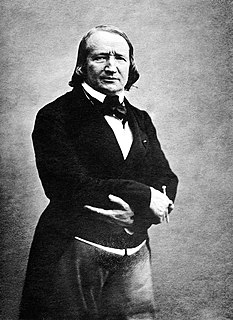A Quote by Chinua Achebe
Art is man's constant effort to create for himself a different order of reality from that which is given to him.
Related Quotes
It is not a slight thing, gentlemen, to force a man to say what he is, or what he believes himself to be; for that supreme word of man, that single expression which he utters of and upon himself is decisive. It lays down the basis upon which all judgment of him is to be formed. From that moment all the acts of his life must correspond to the answer given by him.
The man who has honesty, integrity, the love of inquiry, the desire to see beyond, is ready to appreciate good art. He needs no one to give him an 'Art Education'; he is already qualified. He needs but to see pictures with his active mind, look into them for the things that belong to him, and he will find soon enough in himself an art connoisseur and an art lover of the first order.
Philosophers have long conceded, however, that every man has two educators: 'that which is given to him, and the other that which he gives himself. Of the two kinds the latter is by far the more desirable. Indeed all that is most worthy in man he must work out and conquer for himself. It is that which constitutes our real and best nourishment. What we are merely taught seldom nourishes the mind like that which we teach ourselves.
It is not necessary for a man to be actively bad in order to make a failure in life; simple inaction will accomplish it. Nature has everywhere written her protest against idleness; everything which ceases to struggle toward an ideal, the constant effort to get higher and further, which develops manhood and character.
All great art is by its very essence in conflict with the society with which it exists. It expresses the truth about the existence regardless of whether this truth serves or hinders the survival purpose of a given society. All great art is revolutionary because it touches upon the reality of man and questions the reality of the various transitory forms of human society.
One of man's important mistakes, one which must be remembered, is his illusion in regard to his I. Man such as we know him, the 'man-machine,' the man who cannot 'do,' and with whom and through whom everything 'happens,' cannot have a permanent and single I. His I changes as quickly as his thoughts, feelings and moods, and he makes a profound mistake in considering himself always one and the same person; in reality he is always a different person, not the one he was a moment ago.
Our passions are the chief means of self-preservation; to try to destroy them is therefore as absurd as it is useless; this would be to overcome nature, to reshape God's handiwork. If God bade man annihilate the passions he has given him, God would bid him be and not be; He would contradict himself. He has never given such a foolish commandment, there is nothing like it written on the heart of man, and what God will have a man do, He does not leave to the words of another man. He speaks Himself; His words are written in the secret heart.
He was prepared to die for it, as one of Baudelaire's dandies might have been prepared to kill himself in order to preserve himself in the condition of a work of art, for he wanted to make this experience a masterpiece of experience which absolutely transcended the everyday. And this would annihilate the effects of the cruel drug, boredom, to which he was addicted although, perhaps, the element of boredom which is implicit in an affair so isolated from the real world was its principle appeal for him.
Man is a fallen star till he is right with heaven: he is out of order with himself and all around him till he occupies his true place in relation to God. When he serves God, he has reached that point where he doth serve himself best, and enjoys himself most. It is man's honour, it is man's joy, it is man's heaven, to live unto God.






































